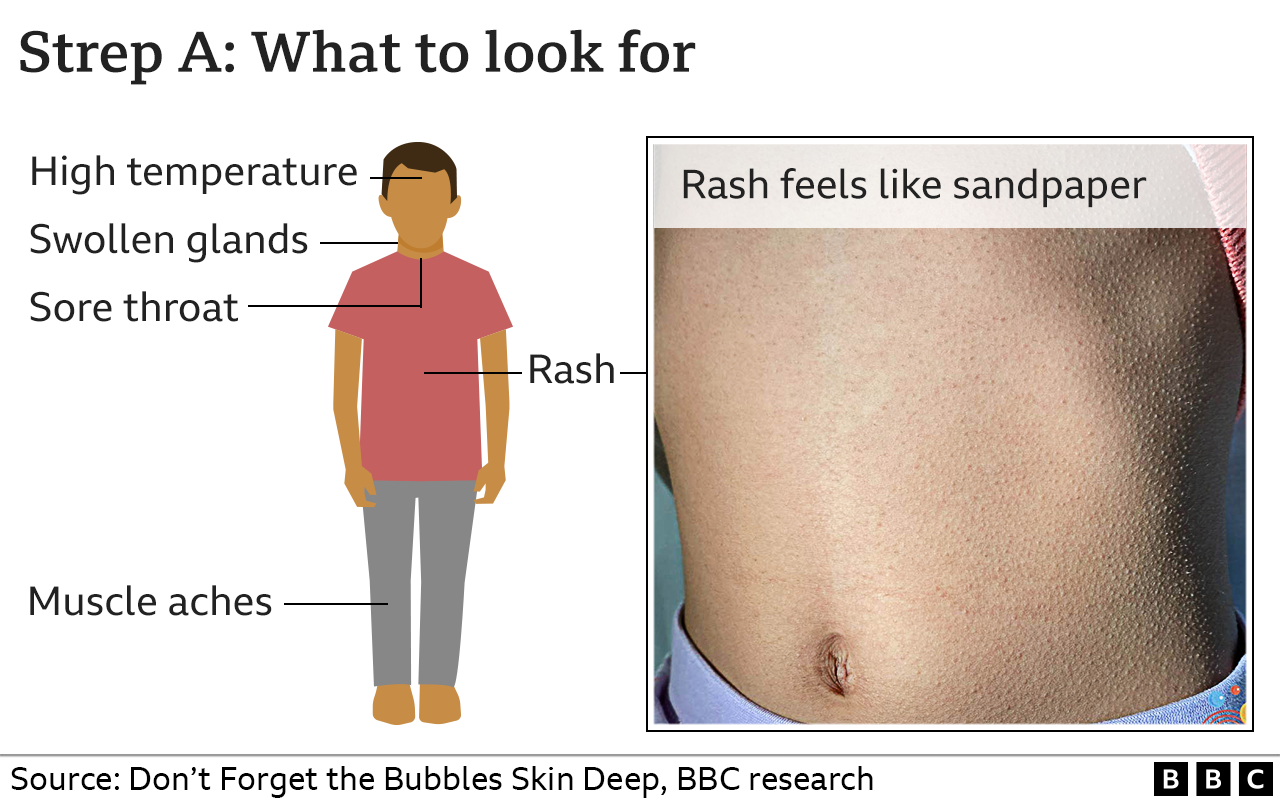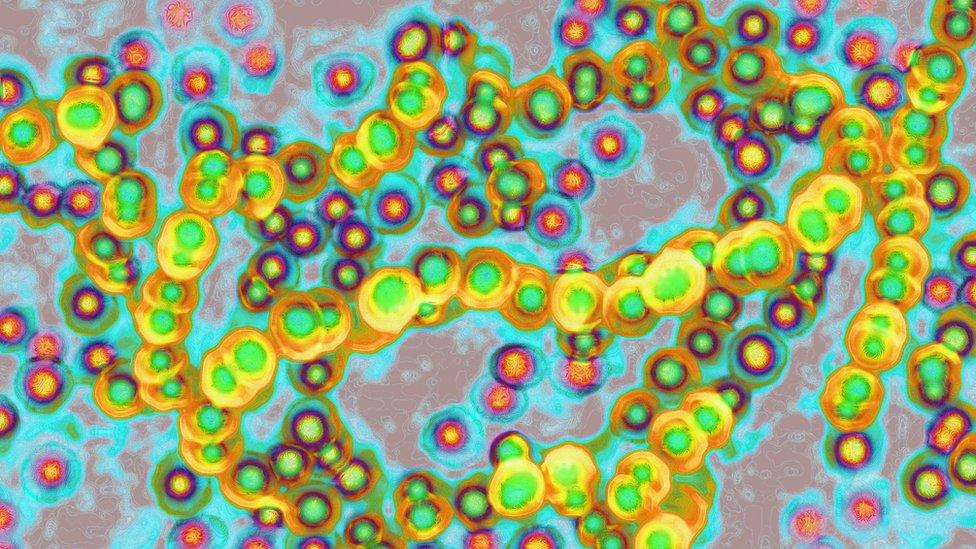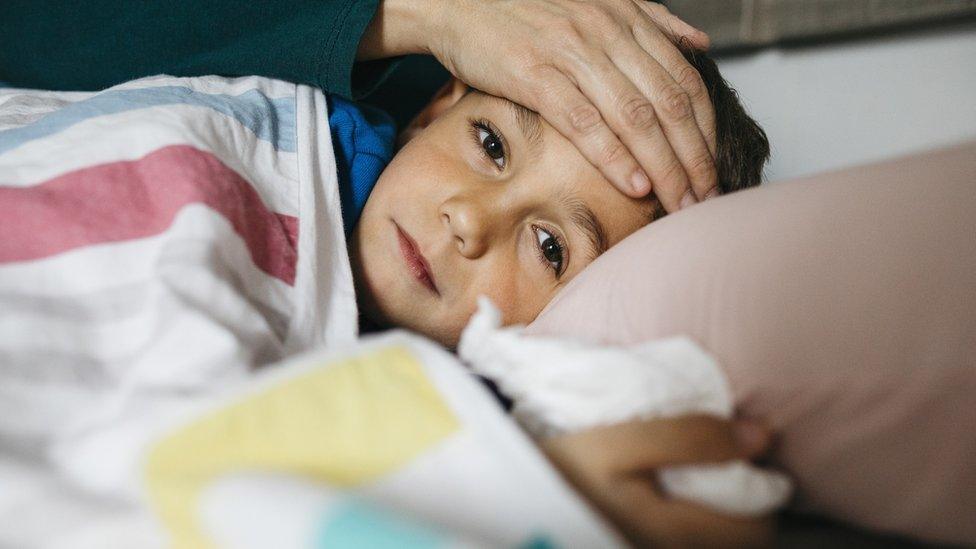Strep A: Third child in Scotland dies from serious infection
- Published

A third child in Scotland has died with Strep A infection, Public Health Scotland has said.
The agency said it was aware of 17 deaths among invasive group A streptococcal infections (iGAS) cases between 3 October and 15 January, an increase of four since its last report.
Those figures now include three under age 10 - one more than last week.
Strep A cases are usually mild, causing illness ranging from a sore throat to scarlet fever.
But on rare occasions can develop into an iGAS infection.
Early symptoms of an iGAS infection include a high temperature, severe muscle aches and localised muscle tenderness, as well as possible redness at the site of a wound.
Last month Scotland's national clinical director told BBC Scotland the deaths of children from the infection was "not unusual".
Prof Jason Leitch said the country was experiencing the highest number of Strep A infections since 2017.
But he added it was a very mild disease in the "extreme majority" of children and the elderly.

The health body's latest report, external, published on Wednesday, stated: "PHS is aware of 17 deaths amongst iGAS cases that appear to meet the case definition between 3 October and 15 January 2023, an increase of four deaths since the previous report.
"Three of these deaths were in children under 10 years of age, an increase of one since the previous report."
According to the new data, 13 of the country's 14 NHS boards had reported iGAS cases between October last year and 15 January this year.
The report also reveals 22 iGAS cases were reported across all age groups, the same number as the previous week.
Of the new cases, 13 involved children under the age of 10 - meaning that since the start of October there have been 41 cases in this age group.
Last week the UK Health Security Agency (UKHSA) data, external showed 190 people - including 30 children under 18 - have died in England from the invasive form of the bacterial infection.
It said a rise in Strep A cases this year is most likely due to high amounts of the bacteria circulating and increased social mixing.
Meanwhile, PHS said in the week ending 15 January there were 532 cases of Group A Streptococcus (GAS).
This is down from 600 in the previous week, but compares with 300 and 480 reports a week that were observed at infection peaks since 2016.
But PHS said the rise could be due to increased testing.
When to seek medical advice
Parents are being urged to look out for symptoms and to promptly contact their GP or NHS24 if they have any concerns.
The UKHSA advises people to call 999 or go to A&E if:
your child is having difficulty breathing - you may notice grunting noises or their tummy sucking under their ribs
there are pauses when your child breathes
your child's skin, tongue or lips are blue
your child is floppy and will not wake up or stay awake

What is Strep A?

Group A streptococcal (GAS) infection is caused by strains of the streptococcus pyogenes bacterium
The bacteria can live on hands or the throat for long enough to allow easy spread between people through sneezing, kissing and skin contact
Most infections cause mild illnesses such as "strep throat" or skin infections
It can also cause scarlet fever and in the majority of cases this clears up with antibiotics
On rare occasions the bacteria can get deeper into the body - including infecting the lungs and bloodstream. It is known as invasive GAS (iGAS) and needs urgent treatment as this can be serious and life-threatening

Related topics
- Published4 January 2023

- Published28 December 2022

- Published9 December 2022

- Published3 December 2022
